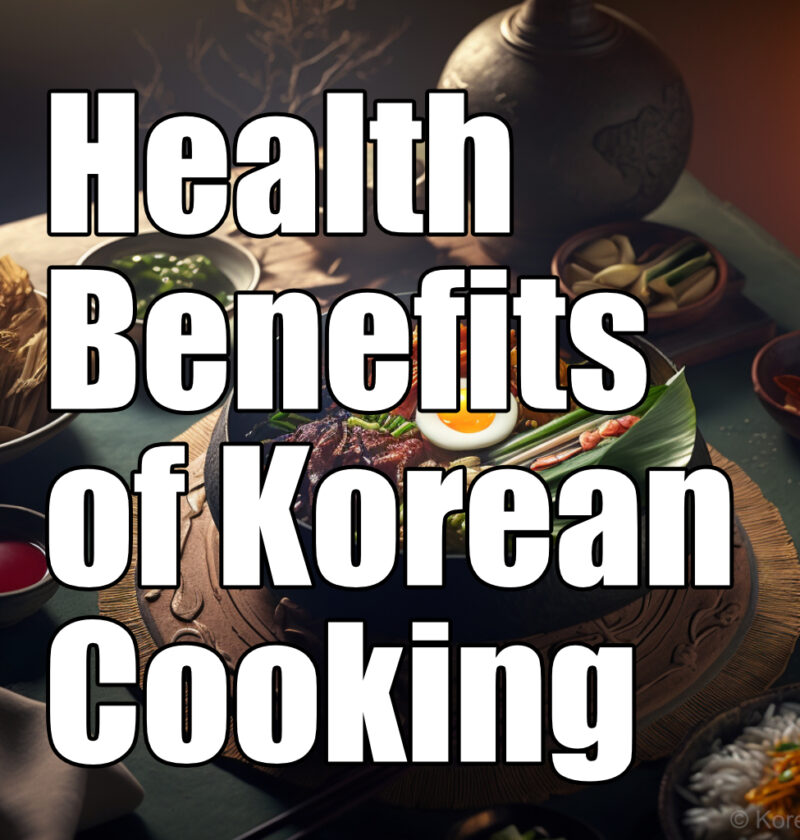Health Benefits of Korean Cooking
Korean cuisine is renowned for its unique blend of flavors and healthy ingredients. It is no surprise that Korean cooking has become increasingly popular worldwide, with many health benefits associated with its consumption. From promoting heart health to improving digestion, here are five health benefits of Korean cooking.
Table of Contents
Korean Cooking, is Korean Food Healthy?
Is Korean food healthy may be a question you’re asking yourself. Korean cooking is a healthy and delicious way to nourish your body. It is low in fat, high in fiber, and packed with essential vitamins and minerals. Korean cooking uses a variety of ingredients such as fresh vegetables, lean meats, and seafood, which provide numerous health benefits.
Benefit 1: Rich in Antioxidants
Korean food is rich in antioxidants, which help protect the body against oxidative stress and reduce the risk of chronic diseases such as cancer and heart disease. Many Korean dishes contain ingredients such as garlic, ginger, green tea, and gochujang, which are all high in antioxidants.
Benefit 2: Promotes Heart Health
Korean cooking is known to promote heart health. It is a low-fat and low-cholesterol diet that includes heart-healthy ingredients such as whole grains, lean meats, and fish. Kimchi, a staple in Korean cuisine, has also been shown to reduce cholesterol levels and lower blood pressure.
Benefit 3: Boosts Digestion
Korean cuisine is rich in probiotics, which promote healthy digestion. Many Korean dishes are fermented, such as kimchi, doenjang, and soy sauce, which contain beneficial bacteria that help improve gut health and reduce inflammation.
Benefit 4: Supports Weight Loss
Korean cuisine is an excellent choice for those looking to lose weight. It is a low-calorie and nutrient-dense diet that is high in fiber and protein, which helps keep you feeling full and satisfied. Korean cuisine also includes a lot of vegetables, which are low in calories and high in nutrients.
Benefit 5: Improves Brain Function
Korean cuisine includes ingredients such as ginseng, which has been shown to improve brain function and memory. Korean cooking also incorporates many other brain-boosting foods such as fish, nuts, and seeds, which are high in omega-3 fatty acids and other essential nutrients.
Conclusion
Korean cooking is a healthy and delicious way to nourish your body. From promoting heart health to improving brain function, Korean cuisine provides numerous health benefits. Incorporating Korean dishes into your diet can help improve your overall health and well-being.
FAQs
What is kimchi, and why is it healthy?
Kimchi is a fermented vegetable dish that is a staple in Korean cuisine. It is made from cabbage, radish, and other vegetables and is high in probiotics, which promote healthy digestion and reduce inflammation.
What are some antioxidant-rich ingredients found in Korean cuisine?
Korean cuisine includes several antioxidant-rich ingredients such as garlic, ginger, green tea, and gochujang, a spicy sauce made from red chili peppers.
How does Korean cooking promote heart health?
Korean cooking promotes heart health by being a low-fat and low-cholesterol diet that includes heart-healthy ingredients such as whole grains, lean meats, and fish. Kimchi, a staple in Korean cuisine, has also been shown to reduce cholesterol levels and lower blood pressure.
How does Korean cuisine improve digestion?
Korean cuisine is rich in probiotics, which promote healthy digestion. Fermented foods such as kimchi, doenjang, and soy sauce, contain beneficial bacteria that help improve gut health and reduce inflammation.
Is Korean cuisine good for weight loss?
Yes, Korean cuisine is an excellent choice for those looking to lose weight. It is a low-calorie and nutrient-dense diet that is high in fiber and protein, which helps keep you feeling full and satisfied. Korean cuisine also includes a lot of vegetables, which are low in calories and high in nutrients.
What are some brain-boosting ingredients found in Korean cuisine?
Korean cuisine includes several brain-boosting ingredients such as ginseng, fish, nuts, and seeds, which are high in omega-3 fatty acids and other essential nutrients that can improve brain function and memory.






